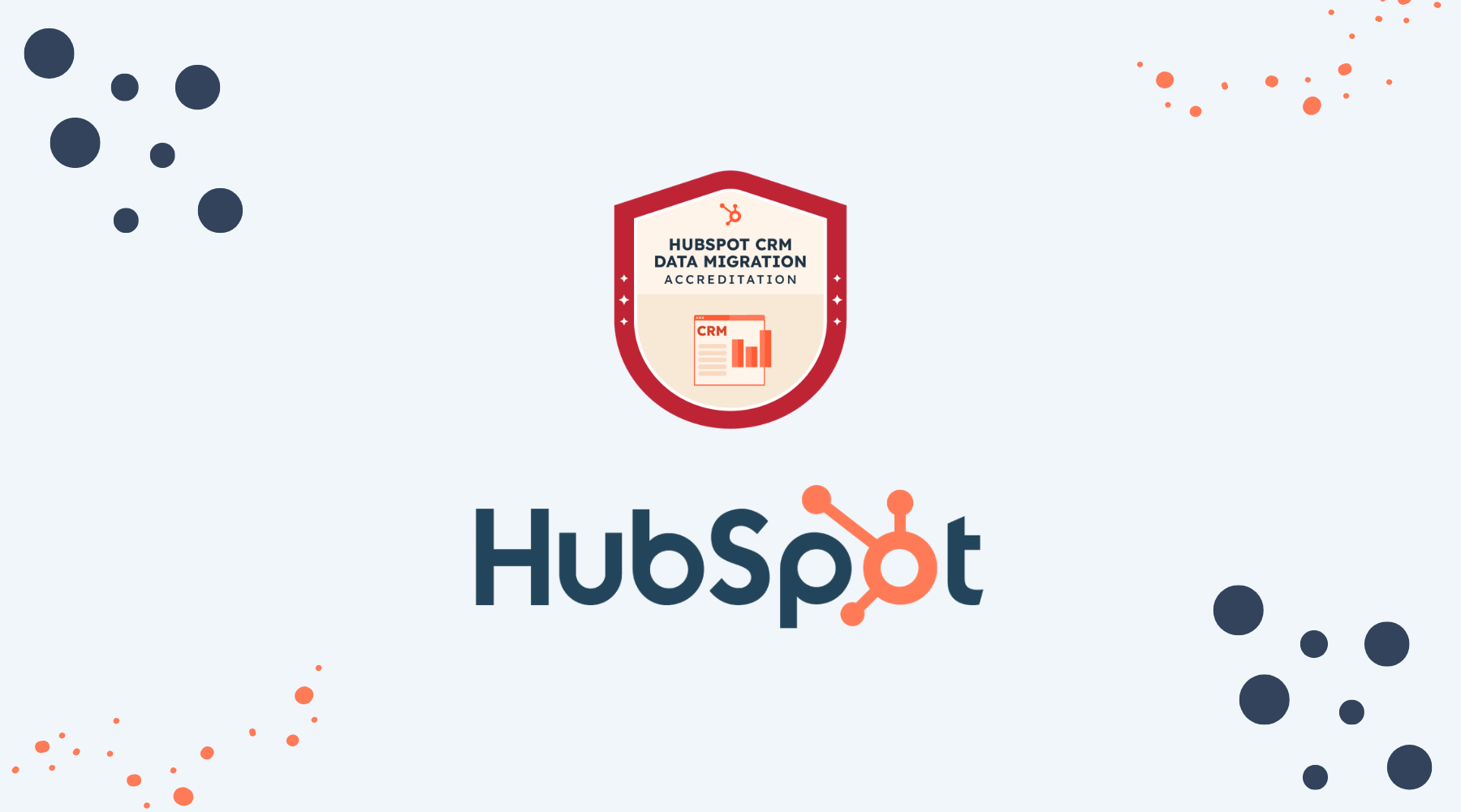
Why You Should Do a HubSpot Portal Audit & a Comprehensive Guide
Written by: Hayley Bonnett
Published: 2 November, 2023
Are you making the most of your HubSpot portal? Conducting a HubSpot portal audit can help you answer that question and identify areas for improvement. In this blog post, we will explore what a HubSpot portal audit entails, why you should do it, and when it's the right time to conduct one.
What is a HubSpot Portal Audit?
A HubSpot portal audit is a thorough examination of your HubSpot account to assess its overall health, performance, and utilization. It involves reviewing various aspects of your portal settings, marketing hub, sales hub, service hub, and HubSpot CMS. The goal is to identify any issues, gaps, or areas where optimization is needed to maximize the value you can derive from HubSpot. If you don’t have the time or resources to do this, then we recommend hiring a HubSpot administrator to help you out.
Why Should You Do a HubSpot Portal Audit?
Optimizing for your Business
Performing a HubSpot portal audit offers several benefits. Firstly, it helps ensure your HubSpot portal is properly configured and optimized for your business needs. By identifying and addressing any issues or gaps, you can enhance the overall effectiveness and efficiency of your HubSpot usage.
Finding Under-Utilized Features
A HubSpot portal audit also helps you uncover under-utilized features and tools. HubSpot provides a wide range of tools and functionalities, and it's common for users to overlook or not fully leverage them. By identifying these untapped resources, you can unlock additional value and improve your marketing, sales, and service efforts.
Data Hygiene
Moreover, a HubSpot audit lets you maintain clean and accurate data. Your contact and company data are crucial in effectively engaging with your audience and making data-driven decisions. By reviewing your data collection methods, eliminating duplicates and irrelevant information, and ensuring proper data organization, you can enhance the quality and reliability of your data.
When Should You Conduct a HubSpot Portal Audit?
The frequency of conducting a HubSpot audit may vary based on your business needs and the complexity of your HubSpot implementation. However, it is generally recommended to perform an audit at least once a year or whenever significant changes occur in your business or marketing strategies.
Some common scenarios that may indicate the need for a HubSpot portal audit include:
- Implementing HubSpot for the first time
- Migrating from another CRM or marketing platform
- Changes in your business goals or target audience
- Experiencing performance issues or a decline in results
- Significant updates or new features released by HubSpot
- You routinely review your portal to keep it optimized
Where to Start with Your HubSpot Portal Audit?
To ensure that no key features are missed during your audit, we recommend starting with a few vital areas:
Portal Settings
- Start by reviewing your integrations to ensure they are creating clean data. Address any sync errors promptly to maintain accurate and consistent information.
- Check your settings to ensure that goals are enabled and up to date. Verify that your domains are set up correctly without any warnings. Consider enabling two-factor or multi-factor authentication for enhanced security.
- Identify under-utilized portal tools and explore how they can support your marketing, sales, and service efforts.
CRM
- Evaluate the cleanliness and relevance of your contact and company data. Review properties and data collection methods to ensure they align with your business needs.
- Verify if your current number of contacts matches the threshold you're paying for. Remove duplicates, bounces, unsubscribes, and other irrelevant contacts from your account.
- Assess how lists are being used in your portal. Remove duplicate or unused properties to declutter your CRM. Ensure that Lifecycle Stages, Lead Statuses, and Personas are used correctly.
- Review and update the Legal Basis settings appropriately and efficiently to comply with data protection regulations.
Marketing Hub
- Check if lead scoring is set up accurately to identify your most engaged leads. Evaluate how contacts are added to the database and assigned to the right team members.
- Review marketing emails, ensuring a standard naming convention is used. Update email templates to align them with your brand. Leverage email automation and segmentation for personalized and targeted content. Monitor email health metrics like open rates, click-through rates, unsubscribes, and bounces.
- Evaluate the setup and standardization of forms. Use hidden fields strategically to collect additional data.
- Assess the effectiveness of landing pages, including lead capture strategies, naming conventions, and design best practices. Ensure that thank you pages and emails are set up properly. Conduct A/B tests to optimize landing page performance.
- Review workflows for a standard naming convention, campaign association, and potential errors. Consolidate or delete workflows when necessary. Ensure a lead nurture process is in place.
Sales Hub
- Review lead scoring setup and accuracy. Assess if contacts are assigned to the right team members at the right time. Establish a clear communication channel between marketing and sales to communicate lead value effectively.
- Evaluate deal records, ensuring the right information is collected to support your team. Standardize and organize products and line items.
- Verify if deal stages are used correctly and consistently. Implement pipeline automation to streamline deal progression.
- Assess the effectiveness of sales emails, including naming conventions, up-to-date collateral, and lead nurture processes. Utilize templates, snippets, and sequences for efficiency and personalization.
- Ensure sales and marketing are working with the same data through effective integrations.
Blog Resource: Essential HubSpot Workflows for Sales Teams
Service Hub
- Evaluate the ticketing process to ensure it collects the necessary information to support your customers. Review ticket stages, routing, and automation for efficient management.
- Check how customer feedback is collected, managed, and utilized to improve service. Establish a process for responding to customer feedback and resolving issues. Align customer satisfaction metrics with your business goals.
- Ensure the knowledge base is regularly updated and optimized to address common customer inquiries. Leverage search terms to identify content gaps and improve self-service options.
HubSpot CMS
- Review website pages to ensure a standard naming convention, SEO best practices, and relevant, high-quality content. Implement topic clusters and pillar pages for improved SEO.
- Assess the effectiveness of blogs, including the use of tags and an enabled RSS feed.
- Verify that website analytics and reporting are collecting the right data.
Need Help?
Optimizing your HubSpot portal can improve marketing, sales, and service performance. If you need expert assistance with conducting a HubSpot portal audit or managing your HubSpot account, check out our HubSpot Admin service.

Written by: Hayley Bonnett
Hayley Bonnett is one of our Canadians working from Calgary, Alberta, a great location for her due to her love of the mountains. She recently graduated with a BBA majoring in marketing and is excited to continue learning and further her education even more.
Solutions
Results
Resources
About
Contact
© CRONYX Digital SEZC







.png)
.png)
.png)
